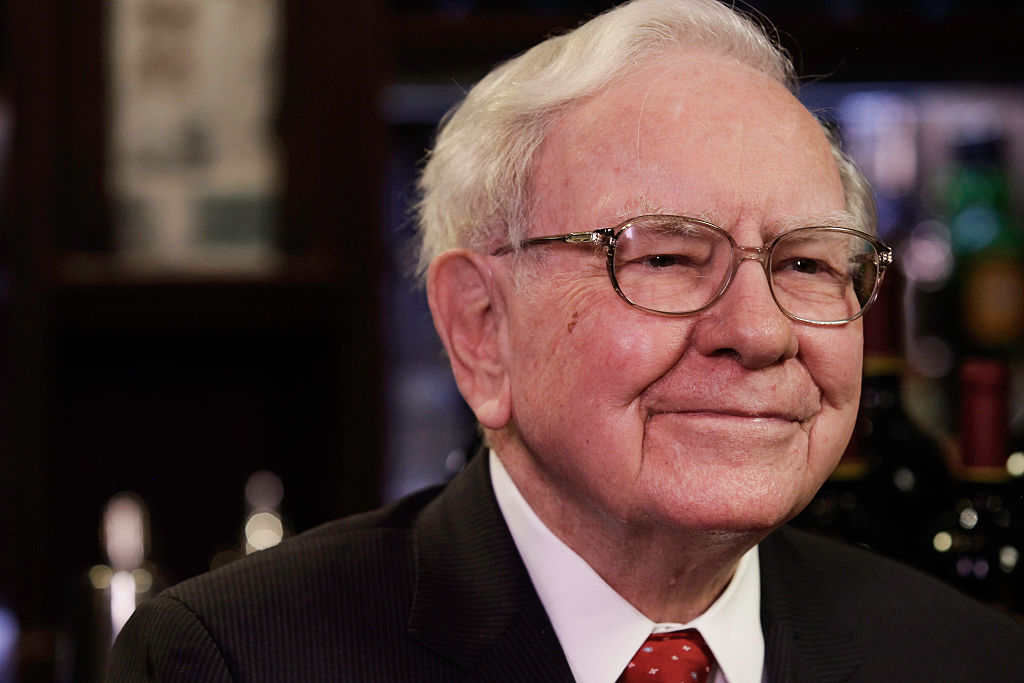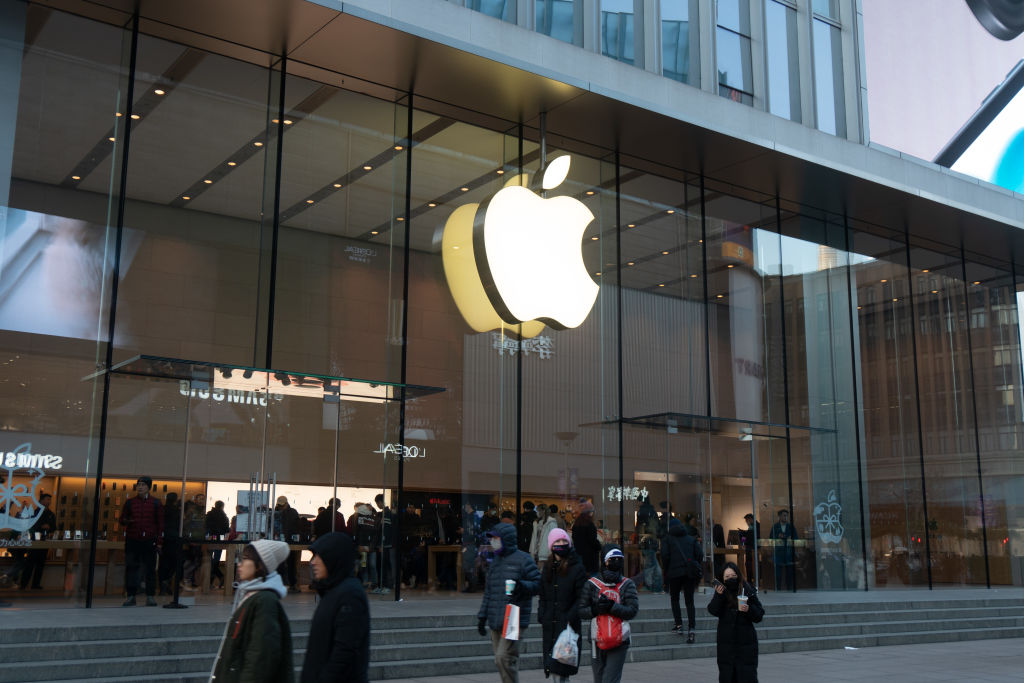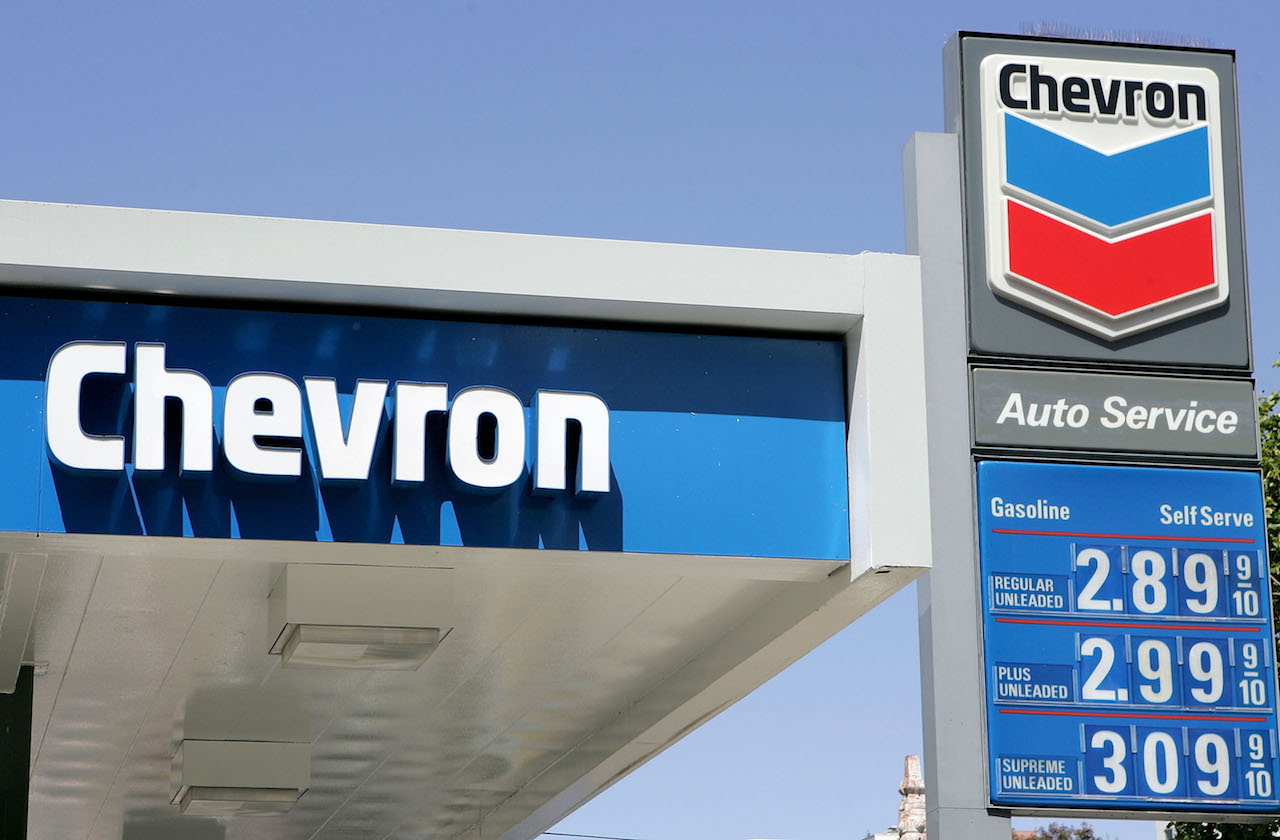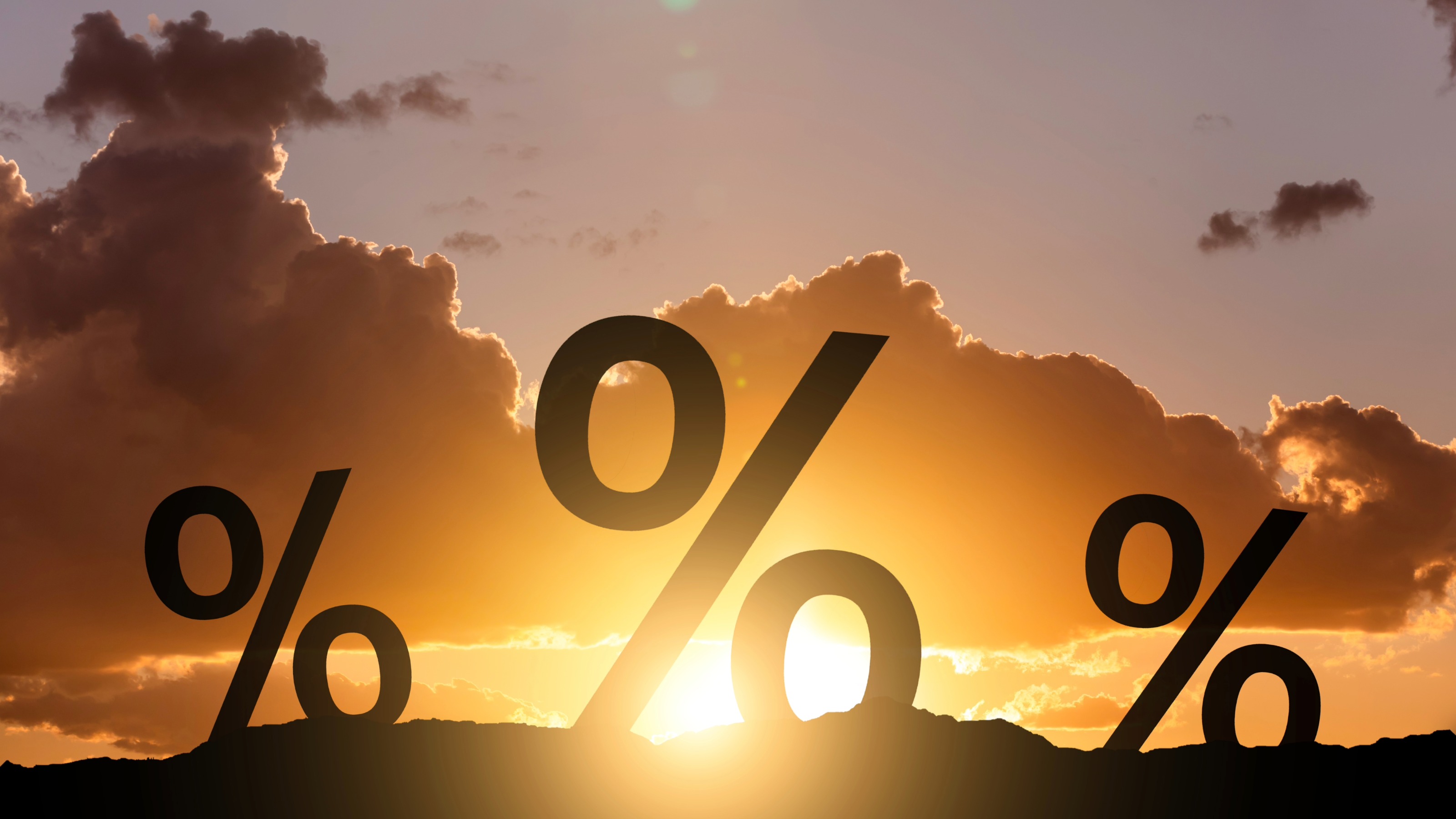Warren Buffett Stocks: A Look at Berkshire Hathaway's Holdings
Warren Buffett's holdings are a diverse set of blue chips and lesser-known growth bets. Here, we are the stocks included among Berkshire Hathaway's holdings.

Profit and prosper with the best of Kiplinger's advice on investing, taxes, retirement, personal finance and much more. Delivered daily. Enter your email in the box and click Sign Me Up.
You are now subscribed
Your newsletter sign-up was successful
Want to add more newsletters?

Warren Buffett stepped down as CEO of Berkshire Hathaway (BRK.B) at the end of 2025, and although he remains chairman, the holding company's stock portfolio is under new management.
Buffett always handled the largest positions in the Berkshire Hathaway portfolio, but those days are no more. The greatest long-term investor of all time has confirmed that CEO Greg Abel will oversee the entire portfolio, supported by investment manager Ted Weschler.
Notably, Todd Combs – who previously managed a portion of the portfolio alongside Weschler – departed in late 2025 to take a role at JPMorgan Chase (JPM). Weschler and Combs were thought to oversee perhaps 10% of Berkshire's $274.2 billion worth of U.S. equity holdings.
From just $107.88 $24.99 for Kiplinger Personal Finance
Become a smarter, better informed investor. Subscribe from just $107.88 $24.99, plus get up to 4 Special Issues

Sign up for Kiplinger’s Free Newsletters
Profit and prosper with the best of expert advice on investing, taxes, retirement, personal finance and more - straight to your e-mail.
Profit and prosper with the best of expert advice - straight to your e-mail.
But then Berkshire's portfolio has been changing dramatically for years now. Although old-guard favorites such as American Express (AXP) and Coca-Cola (KO) still form the core of the portfolio, Buffett & Co. have taken a shine to names such as Apple (AAPL), Amazon (AMZN) and, most recently, Alphabet (GOOGL).
One thing that hasn't changed, however, is Buffett's preference for maintaining a highly concentrated portfolio.
Excluding the company's Japanese brokerage stocks and other overseas equities, Apple alone accounts for more than a fifth of Berkshire's U.S. stock portfolio, according to data from WhaleWisdom. (That's down from more than 40% at its peak.)
Furthermore, Berkshire's top five U.S. equity holdings comprise about 70% of its portfolio value, while the top 10 account for 88%.
As Buffett likes to say, diversification is for those who don't know what they're doing.
Regardless, whether we're talking about Berkshire's biggest bets or the scores of stocks it maintains at the margins, Buffett's focus shifted after the COVID-19 pandemic.
Buffett owned airline stocks at the start of 2020; now he holds none. Banks were aces among Buffett stocks to begin 2020; Berkshire soon kicked most of them to the curb.
It seems like only yesterday that Buffett was an enthusiastic buyer of select pharmaceutical names. Today, most of those positions have been closed out, too.
If you want to know which stocks Warren Buffett is buying and selling, look no further than the Berkshire Hathaway's holdings.
Price, share totals and other data as of December 31, 2025. Sources: Berkshire Hathaway's SEC Form 13F filed February 17, 2026, for the reporting period ended December 31, 2025; and WhaleWisdom.
The Berkshire Hathaway portfolio
Company (Ticker) | Shares held | Holding value | Percent of portfolio |
|---|---|---|---|
Apple (AAPL) | 227,917,808 | $61,961,735,283 | 22.60% |
American Express (AXP) | 151,610,700 | $56,088,378,465 | 20.46% |
Bank of America (BAC) | 517,295,934 | $28,451,276,370 | 10.38% |
Coca-Cola (KO) | 400,000,000 | $27,964,000,000 | 10.20% |
Chevron (CVX) | 130,156,362 | $19,837,131,131 | 7.24% |
Moody's (MCO) | 24,669,778 | $12,602,556,092 | 4.60% |
Occidental Petroleum (OXY) | 264,941,431 | $10,894,391,643 | 3.97% |
Chubb (CB) | 34,249,183 | $10,689,854,998 | 3.90% |
Kraft Heinz (KHC) | 325,634,818 | $7,896,644,337 | 2.88% |
Alphabet (GOOGL) | 17,846,142 | $5,585,842,446 | 2.04% |
DaVita (DVA) | 31,759,065 | $3,608,147,375 | 1.32% |
Kroger (KR) | 50,000,000 | $3,124,000,000 | 1.14% |
Visa (V) | 8,297,460 | $2,910,002,197 | 1.06% |
Sirius XM Holdings (SIRI) | 124,807,117 | $2,495,518,305 | 0.91% |
Mastercard (MA) | 3,986,648 | $2,275,897,610 | 0.83% |
VeriSign (VRSN) | 8,989,880 | $2,184,091,346 | 0.80% |
Constellation Brands (STZ) | 13,000,000 | $1,793,480,000 | 0.65% |
Capital One Financial (COF) | 7,150,000 | $1,732,874,000 | 0.63% |
UnitedHealth Group (UNH) | 5,039,564 | $1,663,610,472 | 0.61% |
Domino's Pizza (DPZ) | 3,350,000 | $1,396,347,000 | 0.51% |
Ally Financial (ALLY) | 29,000,000 | $1,313,410,001 | 0.48% |
Aon (AON) | 3,602,995 | $1,271,424,876 | 0.46% |
Nucor (NUE) | 6,407,749 | $1,045,167,939 | 0.38% |
Liberty Latin America Class C (LLYVK) | 10,917,661 | $907,912,688 | 0.33% |
Lennar Class A (LEN) | 7,050,950 | $724,837,660 | 0.26% |
Pool (POOL) | 3,068,885 | $702,007,444 | 0.26% |
Amazon (AMZN) | 2,276,000 | $525,346,320 | 0.19% |
Louisiana-Pacific (LPX) | 5,664,793 | $457,488,683 | 0.17% |
Liberty Latin America Class A (LLYVA) | 4,986,588 | $406,406,923 | 0.15% |
The New York Times Company (NYT) | 5,065,744 | $351,663,948 | 0.13% |
HEICO Class A (HEI.A) | 1,294,612 | $326,798,907 | 0.12% |
Liberty Formula One Series C (FWONK) | 3,018,555 | $297,357,853 | 0.11% |
Charter Communications (CHTR) | 1,060,882 | $221,459,118 | 0.08% |
Lamar Advertising (LAMR) | 1,202,410 | $152,201,058 | 0.06% |
Allegion (ALLE) | 780,133 | $124,212,776 | 0.05% |
NVR (NVR) | 11,112 | $81,037,260 | 0.03% |
Jefferies Financial Group (JEF) | 433,558 | $26,867,589 | 0.01% |
Diageo (DEO) | 227,750 | $19,647,993 | 0.01% |
Liberty Latin America Class A (LILA) | 2,396,665 | $17,711,354 | 0.01% |
Lennar Class B (LEN.B) | 180,980 | $17,214,818 | 0.01% |
Liberty Latin America Class C (LILAK) | 1,284,020 | $9,578,789 | less than 0.01% |
Liberty Braves Series C (BATRK) | 115,428 | $4,553,634 | less than 0.01% |
Stocks Warren Buffett is buying
- Berkshire upped its biggest bet in the energy sector, increasing its stake in Chevron, with the Buy-rated Dow Jones stock now Berkshire's 5th-largest holding.
- Berkshire continued to add to its stake in Chubb. The insurer is the holding company's 8th-largest position.
- Berkshire also added to holdings in Domino's Pizza and Lamar Advertising in Q4.
Berkshire boosted its biggest bet in the energy sector, increasing its stake in Chevron (CVX) by almost 7%, or more than 8 million shares. Berkshire, which has owned the Buy-rated Dow Jones stock since the fourth quarter of 2020, now owns more than 130 million shares worth $19.8 billion as of the end of Q4. With a weight of more than 7% in the portfolio, CVX is Berkshire's fifth-largest holding.
In a boost of confidence for Chubb (CB), Berkshire once again upped its stake in the insurer. The holding company, which first bought CB in the first quarter of 2024, increased its position by more than 9%, or almost 3 million shares. With a market value of $10.7 billion as of December 31, CB remains the eighth-largest Berkshire Hathaway holding.
Elsewhere, Berkshire made minor additions to four of its smaller holdings.
Berkshire continued to add to its investment in Domino's Pizza (DPZ), which it initiated in the third quarter of 2024. The holding company increased its stake by more than 12% and now owns nearly 3.4 million shares in the pizza chain worth $1.4 billion as of the end of Q4. However, with a weight of 0.5% in the portfolio, DPZ is Berkshire's 20th-largest position.
The holding company initiated a small stake in The New York Times (NYT), purchasing 5 million shares worth $352 million at the end of Q4. With a weight of about 0.1%, the stake is Berkshire's 30th-largest position.
Lastly, Berkshire made an incremental and essentially immaterial additional investment in Lamar Advertising (LAMR). With a market value of $152 million, LAMR accounts for less than 0.1% of the portfolio.
Stocks Warren Buffett is selling
- Warren Buffett continued to pare back exposure to Apple in the Berkshire portfolio in Q4.
- Despite selling more than 10 million shares, Apple remains the top holding in the Berkshire Hathaway equity portfolio.
- Warren Buffett also sold shares in Bank of America, DaVita and Constellation Brands, among other smaller interests.
Buffett continued to pare back Berkshire's position in Apple, which, as recently as 2024, accounted for roughly 40% of its U.S. holdings. The company sold more than 10 million shares over the course of the fourth quarter – a 4% reduction – but Buffett has hardly lost faith in the iPhone maker.
With nearly 228 million shares worth $62 billion as of December 31, AAPL remains Berkshire's largest holding by far, accounting for nearly 23% of the portfolio's total value.
In another reprise from previous quarters, Buffett once again sold Bank of America (BAC) stock, which has been a major holding since 2017. Berkshire reduced its investment in the nation's second-largest bank by assets by another 9% in Q4, selling more than 50 million shares.
With 517 million shares worth more than $28 billion as of December 31, BAC is Berkshire's third-largest holding, accounting for more than 10% of the portfolio value.
In other sales, Berkshire continued to ease up on DaVita (DVA), its 11th-largest holding, but only by 1.3%. The company also reduced exposure to Constellation Brands (STZ), a stake it initiated at the end of 2024, by 3%.
Other stocks Berkshire pared its stakes in included Aon (AON), Pool Corp. (POOL), Liberty Latin America Class A (LILA) and Atlanta Braves Holdings (BATRK).
Interestingly, Berkshire's most significant reduction in percentage terms was its stake in Amazon. The conglomerate cut its position by 77%, offloading nearly 8 million shares of the Magnificent 7 stock. With a market value of approximately $525 million, Amazon has tumbled from Berkshire's 17th-largest holding at the end of Q3 to its 27th-largest position as of year-end 2025.
Berkshire's top five holdings
- Warren Buffett has always maintained a concentrated Berkshire Hathaway equity portfolio.
- The top five positions in the Berkshire portfolio account for 70% of its total value.
- Apple, American Express, Bank of America, Coca-Cola and Chevron are the five largest holdings.
As noted above, Buffett has always maintained a highly concentrated portfolio. Indeed, he's said that "diversification makes very little sense for anyone who knows what they're doing."
The stocks below accounted for 70% of Berkshire's total U.S. equities portfolio value as of the end of Q4. If you want to know what's driving the bulk of the Buffett's returns, check out the names below.
Apple

- Warren Buffett has called Apple "Berkshire's third business."
- Apple stock was first added to the Berkshire Hathaway equity portfolio in Q1 2016.
- Berkshire Hathaway is Apple's sixth-largest stakeholder.
Buffett has called Apple "Berkshire's third business," so it should come as no surprise that the iPhone maker routinely takes the top spot among the holding company's positions.
True, Berkshire has pared its stake in Apple in recent quarters, but Buffett has assured shareholders he adores AAPL as much as ever. BRK.B's CEO took pains to explain that the iPhone maker is still — er — the Apple of his eye.
For the record, the sales were for tax purposes. The greatest long-term investor of all time said that AAPL is "even better" than American Express or Coca-Cola, two "wonderful" businesses that Berkshire has owned since the early 1960s and late 1980s, respectively.
As Apple's sixth-largest shareholder, Berkshire's continuing interest in the iPhone maker has market-wide implications.
American Express

- Warren Buffett bought his first stake in American Express in the 1960s.
- American Express is a solid dividend payer in the Berkshire Hathaway equity portfolio.
- AXP stock currently accounts for more than 20% of the BRK.A portfolio.
Buffett likes credit card companies. Berkshire owns substantial stakes in payments processors Visa (V) and Mastercard (MA), but he really loves American Express.
Buffett took his first stake in AmEx in the 1960s, and it’s still paying off a half-century later.
There's a lot to love about AmEx: Its management is strong; it's a dominant brand in the industry; and it generates copious amounts of free cash flow — the money left after essential capital expenditures are made that can be used to finance dividends and stock buybacks.
The current yield on the dividend isn't eye-catching, but it is safe and growing. The stock is only slightly more volatile than the broader market. Those are attributes that will help long-term investors sleep better at night.
Bank of America

- Bank of America is the third-largest holding in the BRK.A portfolio.
- Warren Buffett is a big fan of Bank of America CEO Brian Moynihan.
- Berkshire sold more than 50 million Bank of America shares in Q4.
Bank of America is Berkshire Hathaway's third-largest holding. Buffett first acquired BAC stock in Q3 2017. Berkshire is the bank's second-largest institutional shareholder.
In an April 2023 media appearance, Buffett said that he unloaded many of the holding company's bank stocks because he didn't think they were near as solid investments as they once were. As for Bank of America, he said this about the bank and its CEO:
"I like [CEO] Brian Moynihan enormously. And I just don't wanna, I don't wanna sell it," the then 92-year-old CEO told CNBC's Becky Quick.
"But I did sell banks that we'd owned for 25 or 30 years. And if they asked me why I did it, I told them — I just think the system isn't set up quite right in terms of connecting punishment to culprits on something that's important," Buffett added.
Coca-Cola

- Warren Buffett drank Coca-Cola for 52 years before adding the blue chip stock to the BRK.A portfolio.
- When Coca-Cola was first added to the Berkshire Hathaway equity portfolio, Warren Buffett said he planned to hold the stock "for a long time."
- Berkshire Hathaway owned 9.3% of Coca-Cola at the end of Q4.
Buffett famously drank Coca-Cola for 52 years before investing in the stock.
He finally took the plunge in 1988. "We expect to hold these securities for a long time," Buffett wrote back then of his new stake in Coke in a letter to Berkshire shareholders. "In fact, when we own portions of outstanding businesses with outstanding managements, our favorite holding period is forever."
As of the end of Q4 2025, Berkshire owned 9.3% of Coca-Cola’s outstanding shares. Analysts like the stock's prospects, too. Wall Street gives KO a consensus recommendation of Buy, with strong conviction.
Chevron

- The Berkshire portfolio owns just two energy stocks: Chevron and Occidental Petroleum.
- Chevron was first added to the Berkshire Hathaway equity portfolio in Q4 2020.
- Chevron rewards its shareholders with stock buybacks and dividends, two of Warren Buffett's favorite things.
Thanks to the outlook for crude oil prices, the energy sector is enjoying steady and predictable free cash flow. Chevron, the only energy name among all 30 Dow Jones stocks, is returning some of this cash to shareholders through dividends and buybacks.
Make no mistake: There are few things Buffett likes more than dividends and buybacks.
It also helps that oil is a solid hedge against inflation. With inflation still running ahead of the Federal Reserve's 2% target, commodities should remain in favor.
Berkshire's massive pile of cash, equivalents and short-term investments is much better put to use in an asset such as Chevron under such conditions.
Related content
- What Set Warren Buffett Apart
- 7 of Warren Buffett's Biggest Misses
- If You'd Put $1,000 Into Berkshire Hathaway Stock 20 Years Ago, Here's What You'd Have Today
Profit and prosper with the best of Kiplinger's advice on investing, taxes, retirement, personal finance and much more. Delivered daily. Enter your email in the box and click Sign Me Up.

Dan Burrows is Kiplinger's senior investing writer, having joined the publication full time in 2016.
A long-time financial journalist, Dan is a veteran of MarketWatch, CBS MoneyWatch, SmartMoney, InvestorPlace, DailyFinance and other tier 1 national publications. He has written for The Wall Street Journal, Bloomberg and Consumer Reports and his stories have appeared in the New York Daily News, the San Jose Mercury News and Investor's Business Daily, among many other outlets. As a senior writer at AOL's DailyFinance, Dan reported market news from the floor of the New York Stock Exchange.
Once upon a time – before his days as a financial reporter and assistant financial editor at legendary fashion trade paper Women's Wear Daily – Dan worked for Spy magazine, scribbled away at Time Inc. and contributed to Maxim magazine back when lad mags were a thing. He's also written for Esquire magazine's Dubious Achievements Awards.
In his current role at Kiplinger, Dan writes about markets and macroeconomics.
Dan holds a bachelor's degree from Oberlin College and a master's degree from Columbia University.
Disclosure: Dan does not trade individual stocks or securities. He is eternally long the U.S equity market, primarily through tax-advantaged accounts.
-
 Big Nvidia Numbers Take Down the Nasdaq: Stock Market Today
Big Nvidia Numbers Take Down the Nasdaq: Stock Market TodayMarkets are struggling to make sense of what the AI revolution means across sectors and industries, and up and down the market-cap scale.
-
 How Medicare Advantage Costs Taxpayers — and Retirees
How Medicare Advantage Costs Taxpayers — and RetireesWith private insurers set to receive $1.2 trillion in excess payments by 2036, retirees may soon face a reckoning over costs and coverage.
-
 3 Smart Ways to Spend Your Retirement Tax Refund
3 Smart Ways to Spend Your Retirement Tax RefundRetirement Taxes With the new "senior bonus" hitting bank accounts this tax season, your retirement refund may be higher than usual. Here's how to reinvest those funds for a financially efficient 2026.
-
 Big Nvidia Numbers Take Down the Nasdaq: Stock Market Today
Big Nvidia Numbers Take Down the Nasdaq: Stock Market TodayMarkets are struggling to make sense of what the AI revolution means across sectors and industries, and up and down the market-cap scale.
-
 Trump's New Retirement Plan: What You Need to Know
Trump's New Retirement Plan: What You Need to KnowPresident Trump's State of the Union address touched upon several topics, including a new retirement plan for Americans. Here's how it might work.
-
 Buy and Hold … or Buy and Hope? It's Time for a Better Retirement Planning Strategy
Buy and Hold … or Buy and Hope? It's Time for a Better Retirement Planning StrategyOnce you're retired, your focus should shift from maximum growth to strategic preservation and purposeful planning to help safeguard your wealth.
-
 Your Legacy Is More Than Your Money: How to Plan for Values, Not Just Valuables
Your Legacy Is More Than Your Money: How to Plan for Values, Not Just ValuablesLegacy planning integrates your values and stories with legal and tax strategies to ensure your influence benefits loved ones and good causes after you're gone.
-
 Will Real Estate and Private Equity Start to Shine Again in 2026?
Will Real Estate and Private Equity Start to Shine Again in 2026?Real estate, private equity and general partner stakes could benefit from future interest rate cuts. What are the risks and rewards of investing in each?
-
 Nasdaq Soars Ahead of Nvidia Earnings: Stock Market Today
Nasdaq Soars Ahead of Nvidia Earnings: Stock Market TodayWednesday's risk-on session was sparked by strong gains in tech stocks and several crypto-related names.
-
 Health Care Stocks Have Sagged. Can You Bet on a Recovery?
Health Care Stocks Have Sagged. Can You Bet on a Recovery?The flagging health care sector has perked up a bit lately. Is it time to invest?
-
 Your Retirement Age Is Just a Number: Today's Retirement Goal Is 'Work Optional'
Your Retirement Age Is Just a Number: Today's Retirement Goal Is 'Work Optional'Becoming "work optional" is about control — of your time, your choices and your future. This seven-step guide from a financial planner can help you get there.